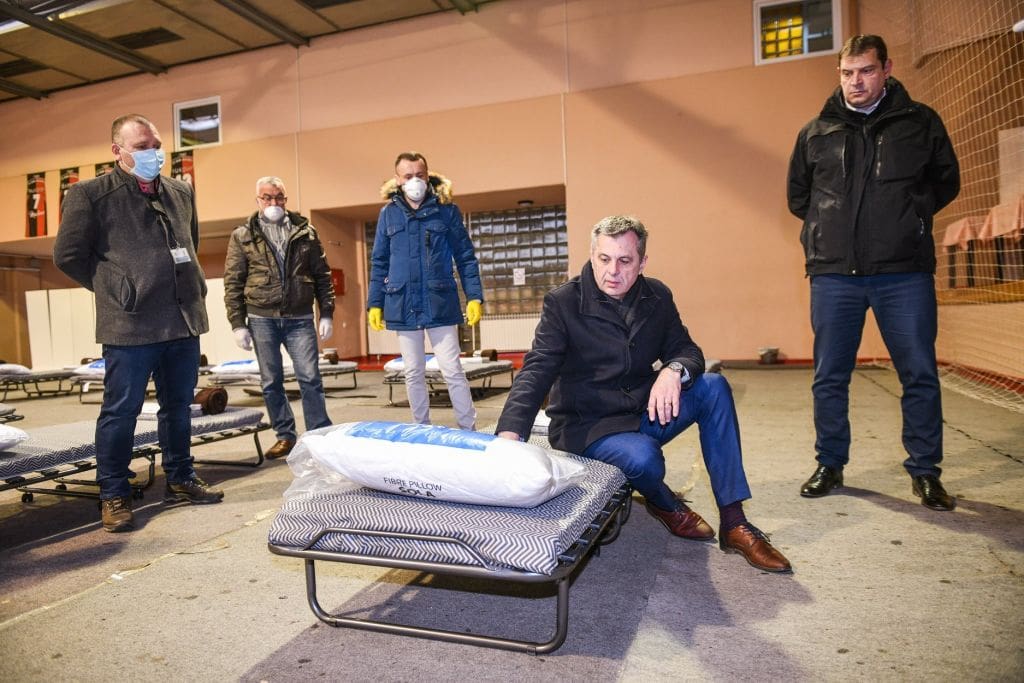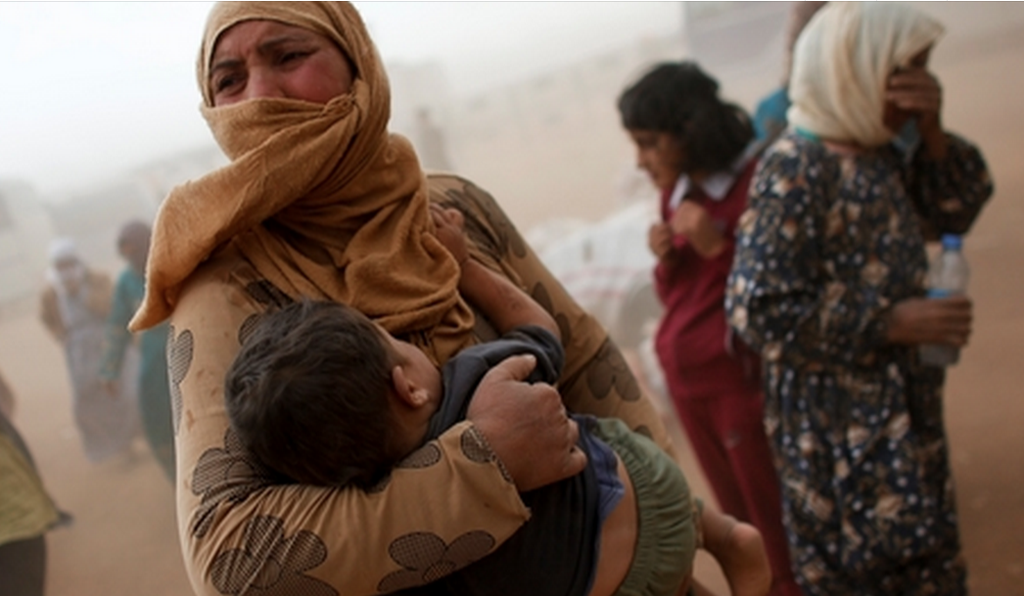The following information is based on the Amnesty International Report 2021/22. This report documented the human rights situation in 149 countries in 2021, as well as providing global and regional analysis. It presents Amnesty International’s concerns and calls for action to governments and others.
BOSNIA AND HERZEGOVINA 2021
Many asylum seekers and migrants were living in inhumane conditions. Independent media and journalists were targeted by politicians. Gender-based violence increased during the Covid-19 pandemic. LGBTI people continued to face discrimination. Prosecution of war crimes was further delayed.Background
Bosnia and Herzegovina (BiH) experienced the most serious political crisis since the end of the war in 1995. The High Representative’s decision in July to criminalize public denial of genocide triggered widespread boycotts of state institutions by Republika Srpska’s (RS) leaders, and months of heightened nationalist rhetoric. In December, the RS National Assembly adopted a resolution initiating the process of RS’s withdrawal from BiH state institutions, which could lead to the unravelling of the BiH state and risk peace and stability.Refugees’ and migrants’ rights
Close to 16,000 people trying to reach EU countries transited BiH in 2021, with thousands at a time remaining stranded in the country, primarily in Una-Sana Canton. The number of arrivals significantly decreased in the second half of the year. Between January and April, around 900 migrants and asylum seekers were living in inhumane conditions and without access to food, water or electricity in Lipa, a temporary camp in Una-Sana Canton, after the authorities failed to agree their relocation to more suitable facilities in other parts of the country.1 The vice-president of the European Commission, Josep Borrell, criticized the authorities for creating a “grave humanitarian situation”. Between May and October, an estimated 2,000 people including families and children, were sleeping rough, in abandoned homes, factory halls and forests in Una-Sana Canton as the reception facilities there were insufficient or inaccessible at the time. In November, with EU assistance, the authorities opened a new 1,500-person reception centre in Lipa. Cantonal authorities restricted the delivery of humanitarian and medical assistance to people living outside reception centres, and aid organizations and individuals were harassed, threatened or prevented from providing assistance.2 The measures imposed by the Cantonal authorities in 2020 targeting asylum seekers and migrants, including illegal restrictions to their freedom of movement and a ban on gathering in public places and using public transport, remained in place. The asylum system remained largely ineffective due to persisting institutional gaps and extremely low recognition rates, with only three people awarded refugee status in 2021.Freedom of expression
Media outlets and journalists reporting about corruption, war crimes and migration continued to operate in a hostile environment and faced serious threats and intimidation, including by public officials. In May, the Chair of the BiH presidency, Milorad Dodik, called Tanja Topić, a Banja Luka-based journalist, a “proven quisling” and a “German intelligence officer” after her comments critical of Milorad Dodik and his political party. Other journalists, including Borka Rudić, president of the BiH Journalists Association, were the target of an online smear campaign by people close to the Party of Democratic Action. Nidžara Ahmetašević, a journalist and migration activist, was arrested and held in police custody for several hours for allegedly “disturbing public peace and order” after she had asked two police officers to wear face masks. In September, the OSCE condemned the “hate campaign” against media workers, and urged the authorities to promptly investigate and prosecute the perpetrators. The BiH Journalists Association recorded close to 300 defamation lawsuits pending before various courts in the country, involving claims against journalists – 80% initiated by politicians – for disproportionate financial damages.Right to health
Despite BiH having the highest Covid-19 death rate per million in the Balkans, the authorities failed to act to secure vaccines after they became available. A nationwide vaccination programme was not launched until April, after the country received a modest supply of vaccines through the COVAX initiative mechanism and other donations. The vaccination rates were below 20% at the end of the year due to widespread vaccine hesitancy and the absence of effective campaigns to counter misinformation.Violence against women and girls
Covid-19 and restrictive measures that were in place until May exacerbated gender-based violence and severely strained victims’ access to shelters, legal aid and psychological counselling. There was almost no progress on harmonizing legislation with the Council of Europe Convention on combating and preventing violence against women and domestic violence (Istanbul Convention), which BiH ratified in 2013.LGBTI people’s rights
In August, the country’s second ever Pride event took place in Sarajevo. There was tight security, and no incidents. LGBTI people continued to face discrimination in all walks of life, including education, work and housing. No progress was made in legalizing same-sex unions.Detainees’ rights
In September, the European Committee for the Prevention of Torture reported widespread physical and psychological ill-treatment of detainees by law enforcement officials in the Federation of BiH, and called for rigorous action to change the culture in police forces.Right to truth, justice and reparation
In June, the International Residual Mechanism for Criminal Tribunals in The Hague confirmed the initial verdict from 2017 and sentenced Ratko Mladić, the commander of the Bosnian Serb army, to life imprisonment for genocide, crimes against humanity and war crimes.3 Systemic deficiencies in the Prosecutor’s Office and the unavailability of defendants who fled to other countries continued to delay the prosecution of war crimes cases. By the end of 2021, close to 600 cases were pending before various courts in BiH. In July, the High Representative imposed amendments to the BiH criminal code, declaring the public denial or glorification of genocide, crimes against humanity or war crimes as a criminal offence punishable by imprisonment. In protest, RS political leaders began a boycott of state institutions. In September, the authorities established a working group to develop a plan for the implementation of the 2019 UN Committee against Torture decision, which found that BiH failed to provide a victim of wartime rape with adequate reparation and urged the authorities to ensure immediate and comprehensive support to all survivors of wartime sexual violence. The plan had not been adopted by the end of the year. Over 7,200 people remained missing as a result of the armed conflict. Political pressure and lack of resources continued to impede the work of the BiH Missing Persons Institute.Relevant Links
- “Bosnia and Herzegovina: Long-term solutions needed to end recurring humanitarian crisis”, 12 January
- Bosnia and Herzegovina: Submission for EU Enlargement Package/Opinion 2021 (EUR 63/4884/2021), 20 April
- “Bosnia and Herzegovina: Mladić verdict ‘an historic day for international justice’”, 8 June
- For more information visit the Amnesty.org country page




